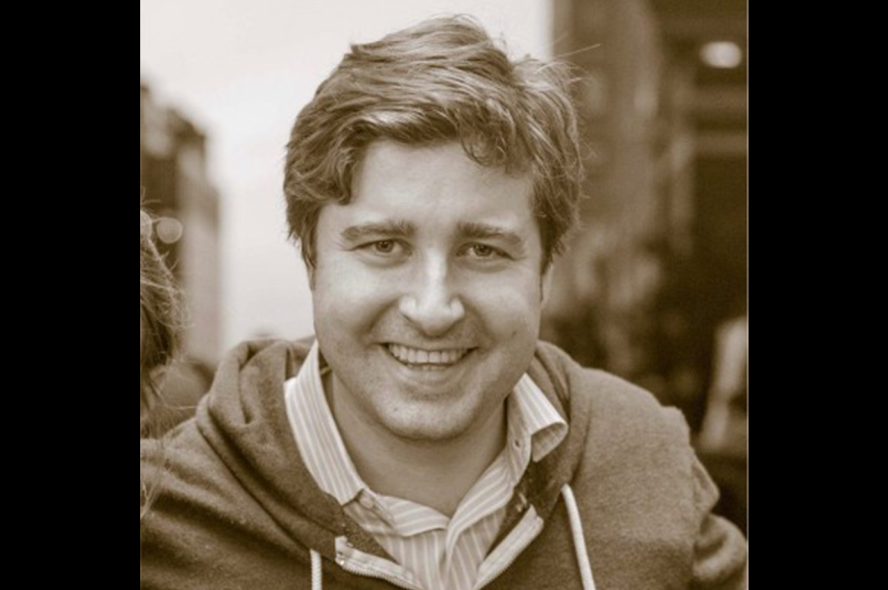A transformational gift to build Tufts’ momentum as a leader in cellular agriculture

For three generations, the family of Davide Dukcevich, A96, made and sold traditional charcuterie, including prosciutto, salami and sopresatta. Dukcevich majored in history at Tufts and later led his family’s business, Daniele Charcuterie, with his brother for 15 years. The tradition of preserving meats by salting and drying dates back to the ancient Phoenicians (and perhaps earlier), yet as a 21st century business-owner, Dukcevich saw technology reshaping sectors all around him, from transportation to communication. “I had a sneaking suspicion it would happen for our industry too, I just didn’t know what the innovations would be.”
Then in 2020, soon after his family sold Daniele Charcuterie, Dukcevich learned of an innovation that just might upend his industry—and the world. His discovery didn’t take place in a lab or a factory, but during a walk in the woods, while listening to a podcast “about this thing called ‘cellular agriculture.’”
Cellular agriculture—also called “cultivated meat”—is a new sector of bioengineering focused on creating protein-enriched foods derived not from animals, but from animal cells grown in bioreactors. For Dukcevich, the idea of providing nutritious, sustainable food for people, while reducing animal suffering and curtailing the heavy environmental costs of meat production, was thrilling.
“And then I discovered that one of the leading centers for cellular agriculture research was Tufts University—my alma mater.”
Read "A R.I. charcuterie heir, a $1m donation to Tufts, and a new way of making meat" in The Boston Globe.
In January 2022 Dukcevich met with David Kaplan, Stern Family Professor of Engineering and Chair of the Department of Biomedical Engineering, and his team of graduate students and postdocs to learn more about their research. Davide was so inspired by the visit that he committed a $1 million gift to support their research. The Kaplan Lab develops biomaterials called biopolymers for use in tissue engineering, regenerative medicine and other applications. Kaplan and his team are known for pioneering work in silk-based biomaterials, and are now recognized as an academic leader in the cellular agriculture space. Currently, they are heading up a major research project funded with a $10M grant from the US Department of Agriculture, engaging Tufts researchers in engineering, science and nutrition, and partner institutions. Dukcevich hopes his contribution will add momentum at this critical, early phase of the field.
“Davide’s gift is transformative,” says Kaplan, “providing support for our faculty and students to pursue research to advance the field of cellular agriculture. In particular, gifts from individual donors allow us to pursue novel ideas and bioengineering solutions that are otherwise challenging to support from traditional funding sources, allowing us to more rapidly advance the field for greater impact.”
“This magic is happening right in our backyard.”
In the Kaplan Lab, Dukcevitch sees a powerful example of Tufts’ mission to educate, innovate and address the urgent challenges of our times.
Dukcevich describes his time at Tufts as “the happiest years of my life,” and those memories made it even more gratifying to re-connect with Tufts, through David Kaplan.
“He reminds me of my Tufts professors who were so dedicated, open-minded, and open hearted.” He admires the ways that Kaplan’s work “marries the lab and the classroom,” as well as the practical and the innovative. “There’s so much potential [for Tufts students] to have exciting careers in this field, while at the same time helping the world,” he says. “And this magic is happening right in our backyard.”
Taking cultured meat from the lab to the supermarket shelf involves many complex challenges, from scaling production, to exploring nutritional properties, to building a consumer base. “It’s such a hard puzzle,” says Dukcevich. “If anyone's going to solve it, it's someone as motivated and talented as David Kaplan.”
Dukcevich’s career gave him unique insights into those challenges. While Daniele Charcuterie partnered with many small farms that treated land, employees, and animals with care, “the reality is that the vast majority of farming [takes place on] a brutal, industrial scale that violates the animals,” and poses a grave threat to the environment. By investing in cellular agriculture, Dukcevich believes that he and other Tufts alumni can unite cutting-edge science and technology with values like hard work, ingenuity, and compassion.
“This very generous gift builds Tufts’ momentum and strengthens our position as a global leader in cellular agriculture,” says President Anthony Monaco. “We are so grateful to Davide for investing in Tufts in this meaningful way. His generosity will help us build the capacity to leverage our unique strengths in the fields of bioengineering and nutrition to address the critical issues of food security and sustainability.”
Department:
Biomedical Engineering